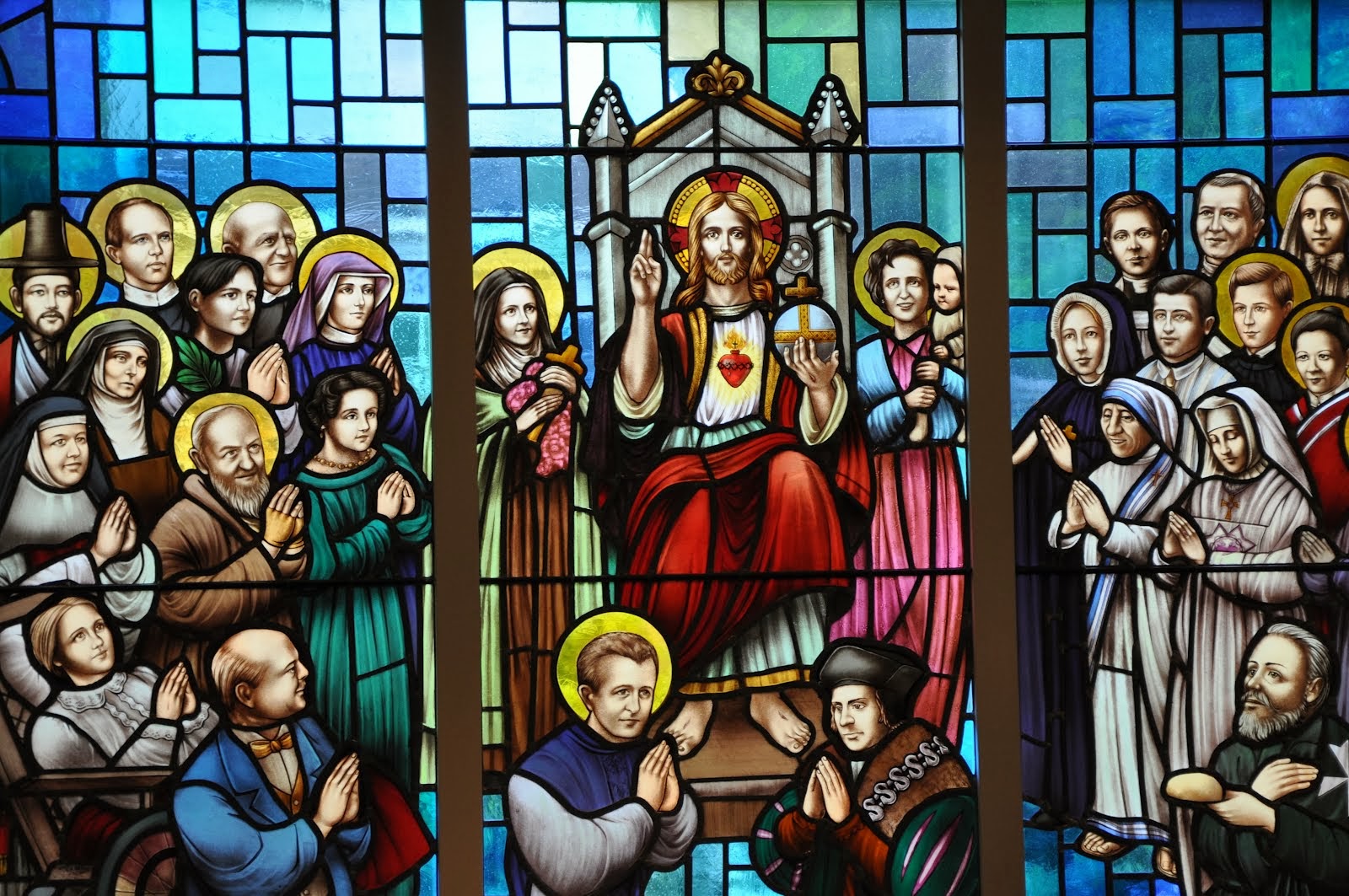
“I know that many say, ‘What good can prayers do for a soul that has departed this world, either with sins or without sins?’ If a king were to banish certain people who had offended him, but then their families should weave a crown and offer it to him on behalf of those under punishment, would he not grant a remission of their penalties? In the same way, when we offer our supplications for those who have fallen asleep – even if they were sinners – we weave no crown, but offer up Christ sacrificed for our sins, propitiating our merciful God for them and for ourselves.” St. Cyril of Jerusalem (4th century, Doctor of the Church)
“If the Lamb is present everywhere, the same must be believed respecting those who are with the Lamb. And while the devil and the demons wander through the whole world, and with only too great speed present themselves everywhere, are martyrs – after the shedding of their blood – to be kept out of sight shut up in a coffin, from which they can’t escape?…If apostles and martyrs while still in the body can pray for others, when they still have reason to be concerned for themselves, how much more must they do so when once they have won their crowns, overcome, and triumphed!” St. Jerome (4th-5th centuries, Doctor of the Church)
“Have unfeigned charity among yourselves, and if you thus follow the example of the Holy Fathers, God the comforter of the good will be your Helper. And I, abiding with Him, will intercede for you, and He will not only give you sufficient to supply the wants of this present life but will also bestow on you the good and eternal rewards which are laid up for those that keep His commandments.” St. Columba (6th century)
“It is not in the same way that we look for mercy from God through Christ’s merits and intercessions and through the saints’. For we ask God for mercy directly through Christ, for He is our only direct mediator with God. But we ask [in the Mass] ask that the merits and prayers of the saints may bring us God’s mercy through the mediation of Christ, for they too, when they pray for us, pray through Christ.” St. Robert Bellarmine (16th-17th centuries, Doctor of the Church)
“Often make acts of love of Our Lady, the saints, and the holy angels. Make friends with them. Talk with them frequently, using words of praise and tenderness. When you have gained familiar access to the citizens of the heavenly Jerusalem above, you will grieve far less at bidding farewell to those of the mean city here below.” St. Francis de Sales (16th 17th centuries, Doctor of the Church)
“We who are travellers on earth form only one body with the saints who are in heaven, and united with them in the same spirit, we offer [in the Mass] to God the same sacrifice.” St. Alphonsus Liguori (17th-18th centuries Doctor of the Church)
“Be generous to the Holy Souls, for he who gives shall receive, and he who is merciful shall obtain mercy. The souls whom we set free will become so many advocates, so many protectors who will pray for us, intercede for us, and, what is more, they will interest themselves in our Eternal Salvation.” St. Francis Xavier Cabrini (19th-20th centuries)
“Poor earth, I will not forget you. Although I feel that I will be immediately drowned in God as in an ocean of happiness, that will not be an obstacle to my returning to earth to encourage souls and incite them to trust in God’s mercy. Indeed, this immersion in God will give me the possibility of boundless action.” St. Faustina Kowalska (20th century)
“I shall carry your name to heaven with me, written in my heart, and when the Lord allows me to cast a glance down to earth, I shall gaze into a dark little cell where a priest is celebrating the greatest of all possible sacrifices, uniting himself each day to crucified Love, and then I shall ask Our Lord to cast a gracious glance on His faithful minister and fill him with blessings… Peace be with you, my Father, and may the eternal light soon shine upon you also. Until we meet in God, your humble and grateful sheep, Jacques” Servant of God Jacques Fesch (20th century)
